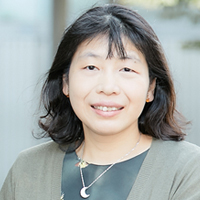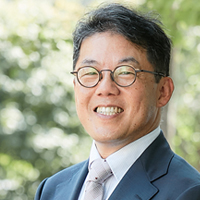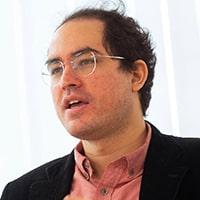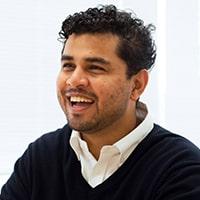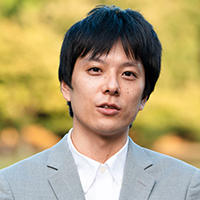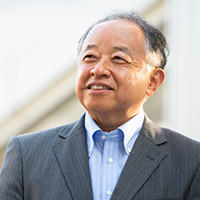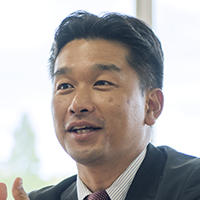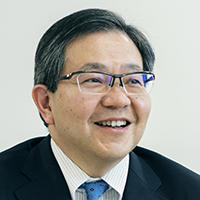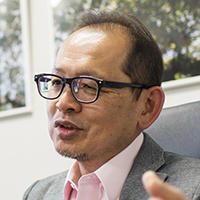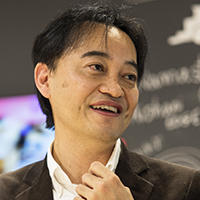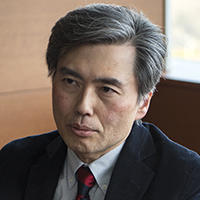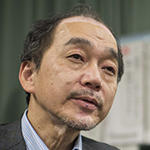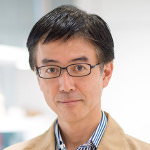SDM Voice|Prof. Takahiro Yakoh
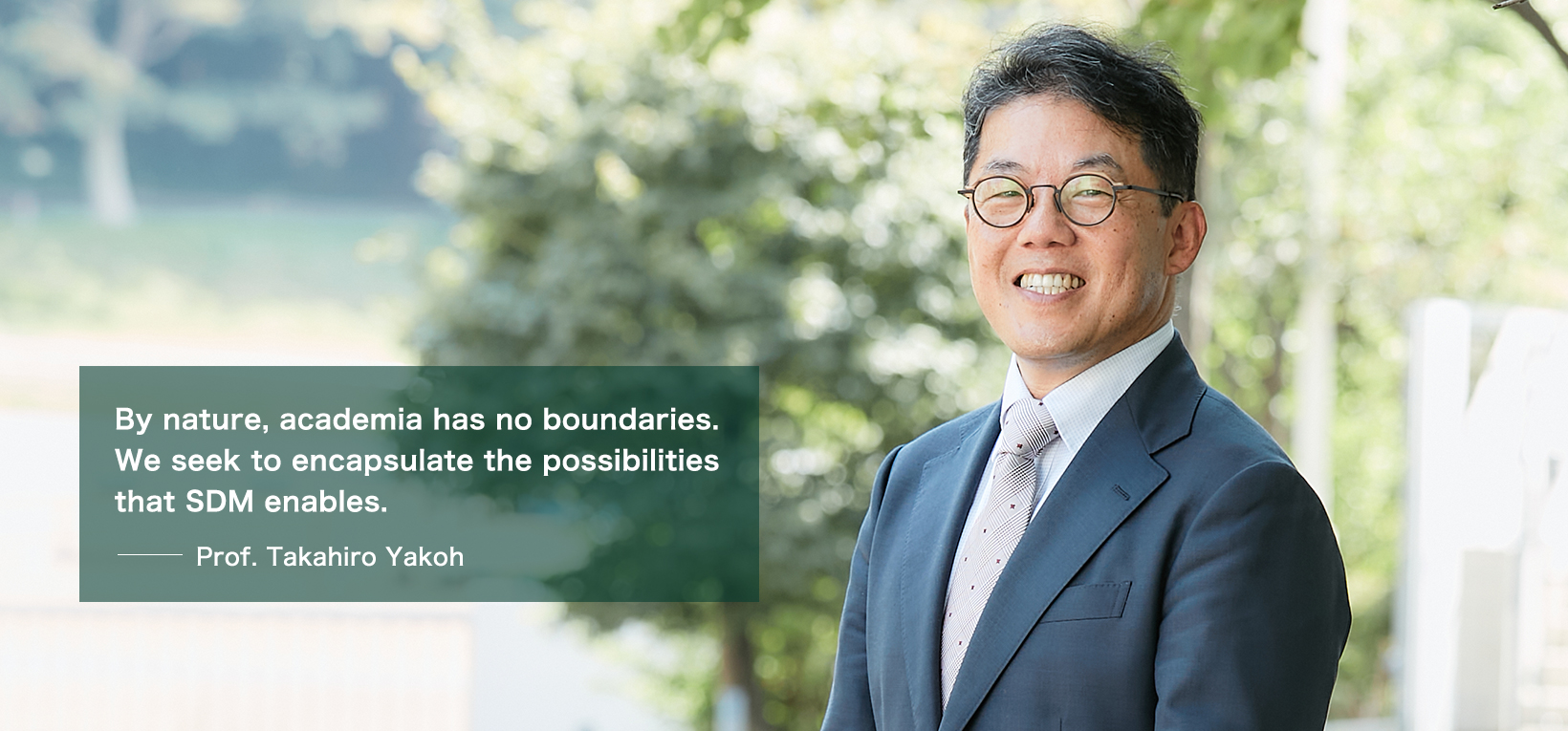
Professor Yakoh aspires to be a cross-disciplinary generalist in addition to being an expert in Computer Science. What thread can weave together a new horizon for academia? His keyword: “Diversity.” To learn more about his goals and plans here at SDM, we sat down to speak with Professor Yakoh.
Profile
Prof. Takahiro Yakoh
Professor, Keio University Graduate School of System Design and Management
Professor Yakoh began his current position after working for Nippon Kokan (NKK; now JFE Holdings) and later as an Associate Professor for the Keio University Faculty of Science and Technology. Specialty: Information and Computer Science The theme driving Professor Yakoh's current research is "trustworthy intelligent system design." The goal of this work is to design and implement systems which are compatible with the rest of society and streamline how machine learning and other types of intelligent digital technologies are incorporated into a variety specialties and fields.
A Computer-Obsessed Schoolkid
I am originally from the Faculty of Science and Technology at Keio University, and I have been consistently involved in computer science research since that time. Back when I was in high school, I had friends who let me use their computer. It inspired me to buy my own, and I became completely enamored.
This was before Windows had become the norm, so my computer ran on DOS, a "disk operating system." I would think about how the computer was set up and made my own hypothesis about how it worked, even trying to reassemble some of its components. Looking back at it now, I can say that experience was the jumping-off point for my life.
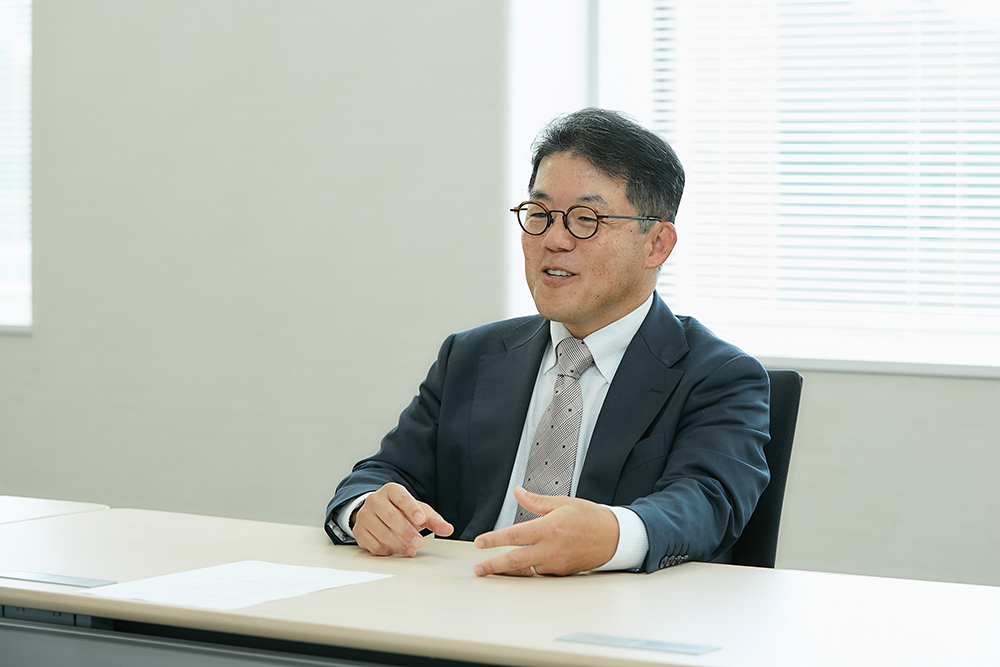
When I started grad school, I went all-in studying computer science. The Japanese word for computer science (keisankikagaku) is a literal translation of the English term and covers a broad range of specialties such as the study of the logical foundations underpinning information and calculations, computer design, and application technology.
After finishing grad school, I worked for two years in the information systems department at Nippon Kokan (which is now a part of JFE Holdings). But then I realized that I wanted to get involved in research again, so I returned to my alma mater, the Faculty of Science and Technology here at Keio University. I ended up becoming an associate professor and got used to speaking from behind the classroom podium. I also worked as a guest professor at the Vienna University of Technology's Institute of Computer Engineering and as a Project Professor at Shinshu University for its Integrated Intelligence Center. In April 2023, I started working at SDM (Keio University's Graduate School of System Design and Management).
True "Learning" Transcends Academic Boundaries.
When I started teaching at the Vienna University of Technology, I was surprised at the difference I saw between it and Japanese universities. Overseas, students will ask question after question. Additionally, everyone there comes from different backgrounds. This holds true whether talking about their academic specialties or their nationalities. Of course, this means that they all have different personal values and ways of thinking. They all share their honest opinions with each other and stimulate discussions. Watching this, I was made aware of my own endless potential to grow as a researcher.
Upon my return to Japan, I founded the AI and Advanced Programming Consortium (AIC) at Keio in 2019. AIC is a place where "students teach students" about advanced programming and AI (artificial intelligence) technology. Students bring their own unique areas of expertise to the consortium, transcending departmental boundaries and learning together through the cross-disciplinary setting. Real knowledge is found beyond academic education. This is the idea I want to illustrate to the world through my work as both a research scientist and as a teacher. It's a project that's still ongoing.
After getting a reaction from my activities with AIC, I decided to try my luck asking SDM if I could establish a more substantial research center. For me, research is not something to be confined to the ivory tower of academia. In other words, writing a research paper should not be the end of the process. To take my research in trustworthy intelligent system design as an example, it is a field that asks how we can evaluate and guarantee the credibility or reliability of AI and intelligent systems so that they can become a normalized part of society. Though intelligent systems are being incorporated into public transportation, media, education, and even medicine, it is impossible to give a 100% guarantee to the reliability of these systems as the intellectual standards increase. Even if we are able to overcome the technological challenges involved, we still must consider the impact these systems have on human experiences, happiness, and privacy. In other words, taking the unified idea of "intelligent system reliability" as a research theme still demands a multifaceted approach that relies on perspectives from sociology, psychology, law, philosophy, and ethics in order to discuss ways of actually applying this technology in the real world. This is exactly what system design at SDM is all about, to "see the forest for the trees." I think that the appeal of SDM is that we can explore this path while walking alongside a diverse range of people.
Learning While Teaching, Teaching While Learning, and Leveling Up As a Researcher
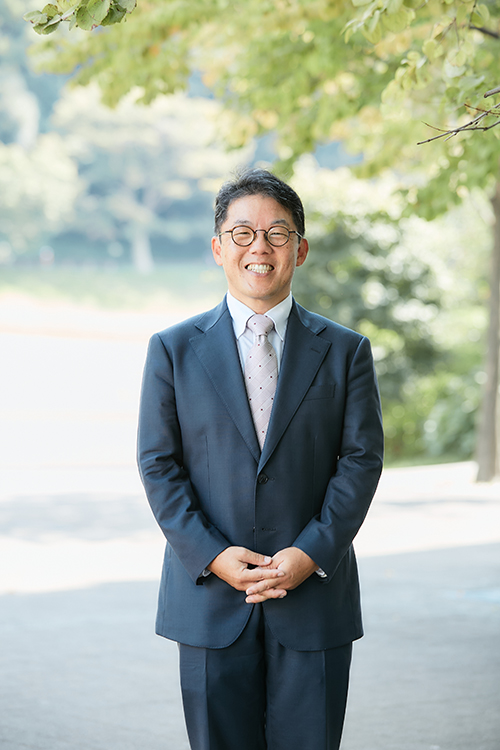
Yukichi Fukuzawa, the founder of Keio University, had a phrase he used in his teachings, "learning while teaching, teaching while learning." The idea behind this phrase is that both faculty and students teach and learn from one another. I love this expression, and believe from my experience that there's a lot of truth to it. I have been studying computer science for 30 years now, and research progresses at breakneck speed. The things I need to learn are endless. While it is important to keep pace with these changes, it is also easy to lose perspective in the rush to avoid getting left behind. This narrowing lens means inevitably that you will miss out on seeing opportunities that would be visible if you kept a more panoramic perspective. By saying "My specialty is ___", we are confining ourselves to the world right in front of us and limiting our own potential. I would argue that this is a common dilemma for researchers.
But what can we do about it? I think that this is where "learning while teaching, teaching while learning" comes into play, iron sharpening iron so that teachers and students can challenge each other to be better. As we work to shape the world, we learn from each other. We teach each other. I maintain that this is the tried-and-true way to live, both as a research scientist and as a human being. As I said earlier, a research paper should not be the end of the research process. Research only ends when it is used to resolve an issue in the real world. That is what I believe.
We live in a time when humans are the ones entrusted with decisions, even when that involves determining how much we can trust AI. At this very moment, these technologies are evolving at incredible speeds. This is why I plan to use my place here at SDM to create an academic approach that will serve as both the metaphorical gas and brake pedal for this issue, to create a place where we can take a bird's eye view that incorporates a whole spectrum of diverse values when looking at technological developments. Another benefit here at SDM is that we have such a diverse array of students and a rich variety of teaching staff. I would like to encourage students who feel that there is something missing from their undergraduate research to take a look at our graduate school. Likewise, I highly recommend SDM for anyone who is working out in corporate spaces and feels like their outlook on the world is becoming more and more narrow. I look forward to seeing how I grow as I continue to meet more people. I hope to see you at a lecture one day.

